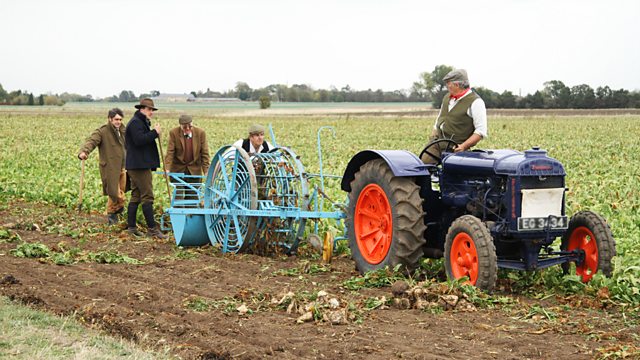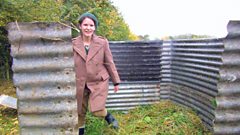
Episode 2
History programme recreating British farming as it was during World War II. The team tackle the conditions faced in 1940, in the face of rationing and the Blitz.
Historian Ruth Goodman and archaeologists Alex Langlands and Peter Ginn face up to the challenges of the biggest revolution ever seen in the history of the British countryside as they turn Manor Farm back to how it was run in the Second World War. When Britain entered the Second World War, two-thirds of all Britain's food was imported - and now it was under threat from a Nazi blockade. To save Britain from starvation, the nation's farmers were tasked with doubling food production in what Churchill called 'the frontline of freedom'. This meant ploughing up 6.5 million acres of unused land - a combined area bigger than the whole of Wales.
The team tackle the conditions faced by British farmers in 1940, when the full impact of rationing took hold and which also saw Britain face the onslaught of Nazi bombing in the Blitz.
Ruth finds out how about the impact rationing had in the kitchen as food became strictly limited - and also explores the temptations of the black market.
Alex and Peter are confronted with vastly reduced supplies of feed for the animals, so attempt a method encouraged by the government: making 'silage'. This involves not only finding alternatives sources of feed to store for winter, but also creating a container to store them in. And for this they find out how the Women's Land Army could be of help. Along they way, they also discover how racial prejudice reared its ugly head during Land Girl recruitment - only to be overcome by the actions of a local farmer.
Ruth goes on a canning drive - gathering fruit to preserve and donate to the war effort - with the local Women's Institute.
Last on
Clip
-
![]()
The team make their own silage
Duration: 01:42
Credits
| Role | Contributor |
|---|---|
| Presenter | Ruth Goodman |
| Presenter | Alex Langlands |
| Producer | Naomi Benson |
| Director | Naomi Benson |
| Executive Producer | David Upshal |
| Presenter | Peter Ginn |

